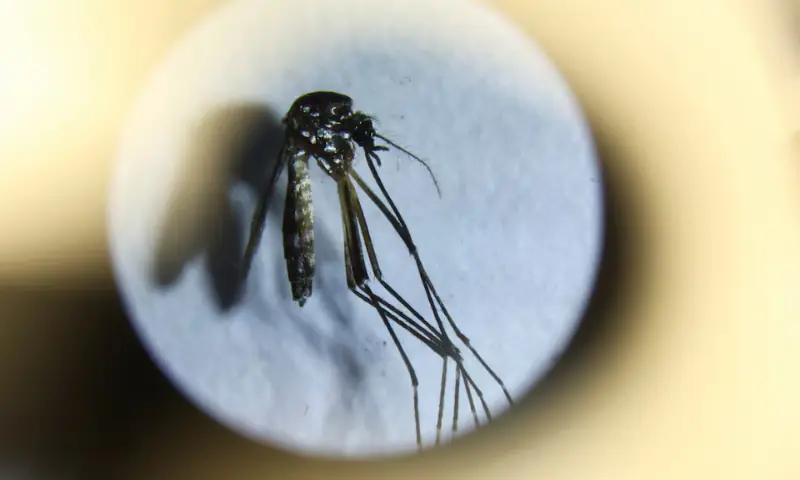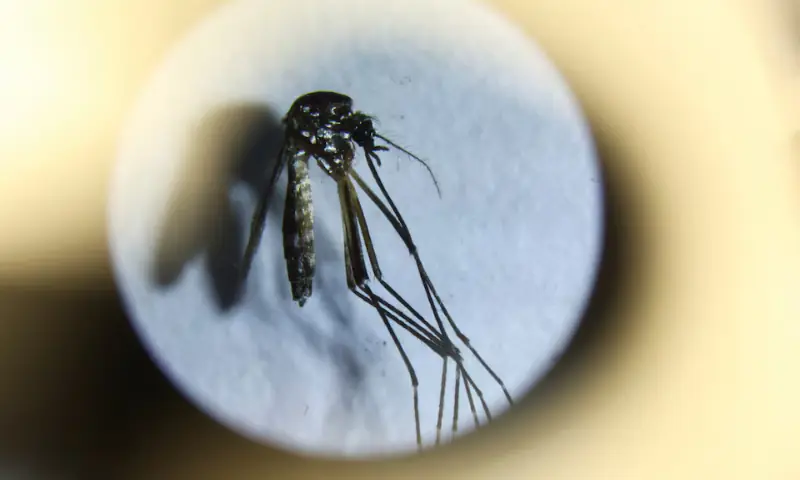
At least 71 new dengue cases were confirmed across Khyber Pakhtunkhwa during the last 24 hours, according to a situation report issued on Friday by the Integrated Diseases Surveillance and Response System (IDSRS) at the Directorate-General Health Services (DGHS).
The report stated that 27 of the new patients were hospitalised, bringing the total number of currently hospitalised dengue cases in the province to 48. So far this year, KP has recorded a total of 3,582 laboratory-confirmed cases, 1,474 hospitalisations, 3,314 recoveries, and two deaths.
Provincial Medical Entomologist at the DGHS Dengue Control Programme, Salahuddin Khan Marwat, told Dawn.com, “Climate change is a key factor in the spread of the disease to new areas.”
Marwat said the current weather conditions, persistent humidity, monsoon rains, and temperatures between 18 to 25 degrees Celsius, have created an ideal environment for mosquito breeding.
“This is why we see a spike in cases in October. The mosquitoes breed rapidly in these conditions,” he said, adding that both very high and very low temperatures slow down their reproduction.
He explained that previously, dengue was confined to districts like Peshawar, Mardan, Swabi, Haripur, and Abbottabad. “But now, cases have been reported in Chitral. Global warming and increased travel contribute to this spread,” he said.
According to the entomologist, the provincial government has prepared for potential outbreaks by designating 1,500 to 1,600 beds for dengue patients across all districts. “Around 400,000 test kits have also been procured and distributed to district health offices based on need,” he said.
He cautioned, however, against the indiscriminate use of insecticide sprays. “Sprays can kill beneficial insects like honeybees, butterflies, and fireflies and also lead to resistance. Globally, environmental cleaning and prevention of mosquito breeding are prioritised over spraying,” he noted.
Marwat stressed the need for public cooperation to curb dengue spread. “There are about 200,000 houses in Peshawar. If each household spends 20 minutes cleaning water containers and surroundings, we can clean the entire city in a day,” Marwat said.
He added that awareness campaigns, school programmes, and the government’s Dengue Action Plan are already in motion, but community engagement remains the biggest challenge.
Dengue is a mosquito-borne viral infection transmitted primarily by the Aedes aegypti mosquito. Caused by the dengue virus, it leads to high fever, severe headache, joint and muscle pain, rash, and in severe cases, internal bleeding or organ failure, according to the World Health Organisation.
With no specific treatment available, prevention focuses on mosquito control and protection from bites. The disease spreads rapidly in tropical and subtropical regions, often overwhelming health systems during seasonal outbreaks.



